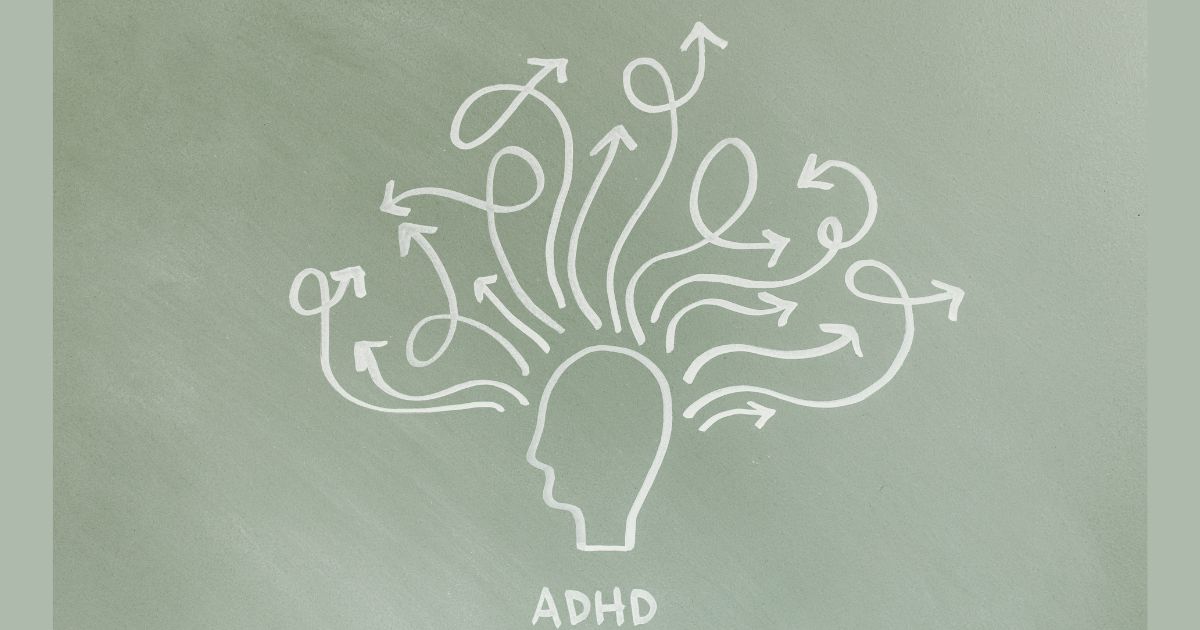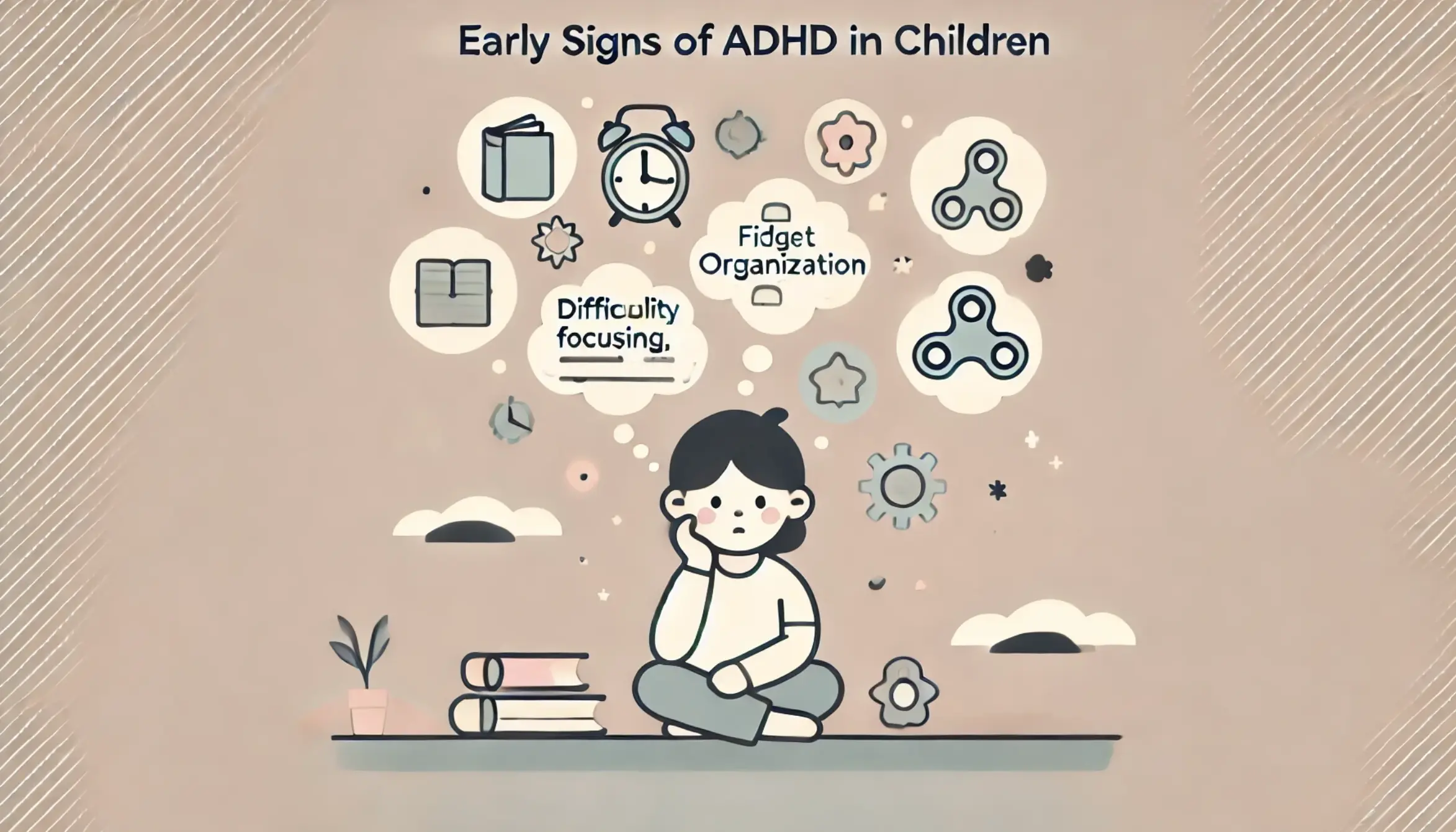Navigating the complexities of adult ADHD requires a comprehensive approach, often beginning with a Neurodevelopmental Evaluation. Beyond a simple diagnosis, this process meticulously assesses cognitive nuances, emotional factors, and behavioral patterns. When unraveling the intricate layers of one’s neurodevelopment, a clearer understanding of ADHD emerges. This comprehensive adult ADHD evaluation paves the way for tailored strategies, empowering individuals to navigate daily challenges effectively.
Join us as we delve into the intricacies of Neurodevelopmental Evaluations for ADHD, shedding light on their transformative potential in the journey of comprehensive care and self-discovery.
What is ADHD?
ADHD, or Attention-Deficit/Hyperactivity Disorder, is a neurodevelopmental condition affecting focus, impulse control, and hyperactivity. It often persists from childhood into adulthood.
ADHD evaluation for adults involves a comprehensive assessment. Clinical interviews, medical history, and validated questionnaires help gauge symptoms’ impact on daily life. Evaluators consider childhood history as signs that must have emerged before age 12.
ADHD diagnosis relies on specific criteria outlined in diagnostic manuals, like DSM-5. Symptoms include inattentiveness, hyperactivity, and impulsivity, often causing work, relationships, and organization challenges.
However, diagnosis can be complex due to overlapping traits with other conditions like anxiety or depression. Treatment typically includes behavioral therapy, skill-building, and sometimes medication.
Stimulants, as well as non-stimulants, can help manage symptoms. Individualized approaches are crucial, recognizing that ADHD manifests uniquely in each person. For those with ADHD, a targeted, multidisciplinary approach and early identification can significantly improve their quality of life.
Role of Neurodevelopmental Evaluations for ADHD
Neurodevelopmental evaluations play a crucial role in understanding and diagnosing ADHD. These assessments involve a comprehensive cognitive, emotional, and behavioral analysis.
In diagnosing ADHD, these evaluations help differentiate it from other conditions with similar symptoms. Through standardized assessments, clinical interviews, and behavioral observations, professionals can pinpoint the presence and severity of ADHD traits in individuals.
ADHD evaluation in adults is critical, as symptoms can persist from childhood. These assessments delve into personal and medical histories, considering childhood behavior patterns. Validated rating scales and questionnaires aid in evaluating symptoms’ impact on various aspects of adult life, like work and relationships.
In addition, the diagnosis of ADHD offers a holistic perspective on an individual’s cognitive and emotional functioning, aiding accurate diagnosis and paving the way for tailored interventions and support strategies.
What Does ADHD Testing Involve?

Embarking on the path to an adult ADHD diagnosis involves a multifaceted journey, often initiated through comprehensive ADHD evaluations. These ADHD evaluations are designed to uncover the intricate puzzle of cognitive patterns, attentional abilities, and behavioral tendencies.
The process typically includes a range of assessments, such as psychological interviews, attention and impulsivity tests, and behavioral observations. Through this intricate web of analyses, a clearer picture of an individual’s ADHD traits emerges, aiding clinicians in making accurate diagnoses.
Join us as we delve into the adult ADHD diagnosis and elements that constitute ADHD testing, unraveling the layers of assessment that contribute to a holistic understanding. From clinical interviews to mood and personality tests, we’ll explore the crucial components that shape the path to effective adult ADHD diagnosis and care.
Clinical Interviews
Clinical interviews are vital in diagnosing ADHD, and they involve in-depth discussions between a healthcare professional and the individual to gather comprehensive information about symptoms, behavior patterns, and challenges.
These interviews often cover various aspects of the individual’s life, including childhood history, academic or work performance, relationships, and daily routines.
During the clinical interview, the clinician may use structured questionnaires or open-ended questions to assess the presence of ADHD symptoms, such as inattention, hyperactivity, and impulsivity.
Information from the individual and sometimes their family members or close contacts helps paint a holistic picture.
These interviews aid in distinguishing ADHD from other conditions with similar symptoms and guide clinicians in making an accurate diagnosis. The insights gained from clinical interviews contribute to tailoring effective treatment strategies for managing and diagnosing ADHD.
Rating Scales
Rating scales are valuable tools in ADHD diagnosis, aiding in comprehensive assessments. These structured questionnaires gather information about an individual’s behavior, focusing on ADHD symptoms like inattention, hyperactivity, and impulsivity.
They are completed by the individual, their family, teachers, or other close contacts, offering a well-rounded perspective on symptoms across different settings.
To get evaluated for ADHD, individuals can consult a medical professional, usually a psychiatrist or psychologist. The evaluation process may include these rating scales, clinical interviews, and a thorough review of the person’s history.
Gathering data from multiple sources helps ensure accuracy in diagnosing ADHD and differentiating it from other conditions.
Rating scales provide quantifiable information, supporting clinicians in making informed decisions. By combining these tools with other assessment methods, professionals can develop effective treatment plans, considering the individual’s unique challenges and needs for managing ADHD symptoms.
Behavioral Observations

Behavioral observations are essential in understanding and diagnosing conditions like ADHD, which involves systematically observing an individual’s actions, interactions, and reactions in various settings.
In ADHD diagnosis, this method helps confirm and characterize symptoms such as inattention, hyperactivity, and impulsivity.
Observations are often conducted by trained professionals, educators, or family members in natural environments like classrooms, workplaces, or social situations. These real-time observations provide valuable insights into how symptoms manifest, their frequency, and their impact on daily functioning.
Behavioral observations contribute to a comprehensive assessment by corroborating interview information and rating scales.
They offer a holistic view of the individual’s behavior, aiding accurate diagnosis and personalized treatment planning. By identifying specific behavioral patterns, clinicians can tailor interventions to effectively manage ADHD symptoms, improving the individual’s overall quality of life.
Neuropsychological Tests

Neuropsychological tests are standardized assessments examining various cognitive skills such as attention, memory, executive functions, and processing speed. In ADHD diagnosis, these tests help identify specific cognitive strengths and weaknesses that may contribute to the disorder’s symptoms.
Neuropsychological tests conducted by a trained psychologist for ADHD provide objective data about an individual’s cognitive profile.
By comparing an individual’s performance to established norms, clinicians can pinpoint areas of difficulty and design targeted interventions. These tests offer insights into how ADHD affects cognitive processes, aiding in accurate diagnosis and personalized treatment planning.
Neuropsychological tests complement other evaluation methods, contributing to a comprehensive understanding of an individual’s cognitive functioning.
Their results guide clinicians in tailoring strategies to manage ADHD symptoms and enhance apperception skills, thereby improving an individual’s overall cognitive and functional abilities.
Intelligence Tests
In ADHD diagnosis, intelligence tests can offer insights into an individual’s cognitive strengths and weaknesses, aiding in understanding how the disorder impacts their cognitive functioning. Trained psychologists conduct intelligence tests and involve a series of tasks that assess verbal, nonverbal, and problem-solving skills.
Results are compared to established norms, allowing for a numerical representation of an individual’s intelligence quotient.
While IQ scores aren’t definitive indicators of ADHD, they contribute to a comprehensive evaluation along with other assessment methods.
Intelligence tests provide a broader context for understanding an individual’s cognitive abilities, helping clinicians create personalized interventions and support strategies. They are part of a multidimensional assessment process that guides accurate diagnosis and individualized treatment plans for ADHD and other cognitive-related conditions.
Mood and Personality Tests
Mood and personality tests are psychological assessments that delve into an individual’s emotional well-being and behavioral tendencies. While not directly aimed at diagnosing ADHD, these tests offer valuable insights into an individual’s emotional state, which can impact their experience with the disorder.
These tests, administered by mental health professionals, explore factors such as mood fluctuations, anxiety, depression, and personality traits.
They help identify emotional challenges that may coexist with ADHD, contributing to a more comprehensive understanding of the individual’s mental health.
By examining an individual’s mood and personality traits, clinicians can tailor interventions that address both ADHD symptoms and emotional well-being. These tests provide a well-rounded perspective on an individual’s psychological landscape, aiding in holistic treatment planning and promoting overall mental health and stability.
Why is Neurodevelopmental Evaluation Important in the Diagnosing of ADHD?
Neurodevelopmental evaluation is crucial in diagnosing ADHD due to its comprehensive approach to assessing cognitive, emotional, and behavioral aspects. However, if you are asking yourself: how to get an ADHD diagnosis? Can a psychologist diagnose ADHD, or do I need additional help?
It is vital to note that professionals, including psychologists, can diagnose ADHD by conducting thorough evaluations. In addition, they help differentiate ADHD from other conditions with similar symptoms and provide a holistic understanding of an individual’s challenges.
Through this process, psychologists can ascertain the presence and severity of ADHD traits, enabling accurate diagnosis and personalized treatment strategies tailored to the individual’s unique needs and circumstances.
ADHD Evaluation Oakland? Contact Ability Psych Services
Obtaining a comprehensive ADHD evaluation is crucial for accurate diagnosis and effective treatment. Ability Psych Services offers expert assessments, including clinical interviews, behavioral observations, and validated tests. With personalized insights, Ability Psych Services paves the way for tailored interventions, enhancing the quality of life for those dealing with ADHD challenges in Oakland and beyond. So, if you are wondering how to get an ADHD diagnosis, reach out to us for a comprehensive evaluation that can make a positive difference!





